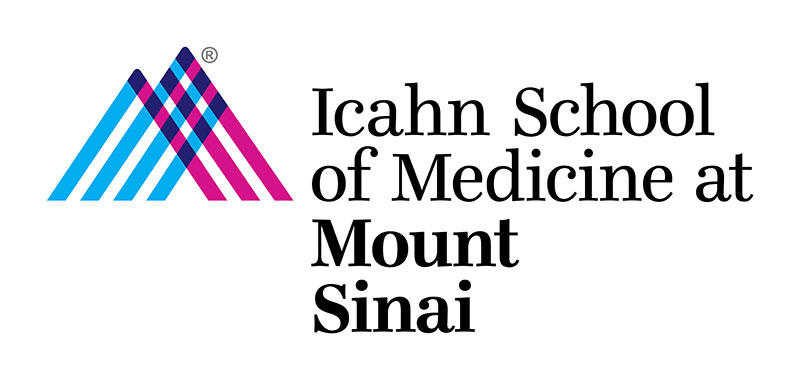Research
The Velthorst Lab is part of the Seaver Autism Center for Research and Treatment at the Icahn School of Medicine at Mount Sinai. The Seaver Autism Center is a fully integrated, translational research center that leads progressive studies and provides personalized care to individuals with autism and related rare disorders. As a team, we are dedicated to discovering the biological causes of autism and developing breakthrough treatments.
Our laboratory incorporates psychological, epidemiological and biological approaches to better understand risk for, and functional trajectories of schizophrenia and related neurodevelopmental disorders, including adult with autism. Ultimately, we seek to develop (preventive) treatments that minimize risk for- and reduce the burden of- disabling psychiatric disorders.
To achieve these goals, our work broadly involves two complementary lines of research:
Early risk factors
In our first line of research, we aspire to increase our understanding of who is at increased for development of psychosis and autism. Specifically, we examine the role of environmental factors. For psychosis, this includes early life experiences such as childhood adversity and cannabis use and their interactions with genetic risk in the pathway to disease. We also are interested in behavioral markers that often precede major psychiatric disorders (e.g. social disengagement and cognitive disturbances) and how these contribute to risk.
Trajectories of (social) cognitive impairments
Given the crucial role of social and cognitive functioning as both predictors and disabling features of schizophrenia and other neurodevelopmental disorders, another goal of my research program is to understand when these behavioral disturbances first occur, and how they relate to illness trajectories. We believe that understanding the onset and course of social (cognitive) impairments is a crucial first step toward the identification of important intervention windows.

Contact Us
Eva Velthorst, Ph.D.
Assistant Professor
Eva.velthorst@mssm.edu
Funding and Awards
Funding:
Beatrice and Samuel A. Seaver Foundation Faculty Scholar Award
The overall goals of this scholarship are to integrate several scientific areas, including psychiatry, epidemiology, and genetics towards the goals of obtaining a broader picture on the etiology, developmental trajectories, underlying (biological) processes and best treatment options for social functional deficits in adult psychiatric populations.
Brain and Behavior Research Foundation
“A Molecular Test of the Nature of Nurture in the Pathway to Psychosis”
This study is an investigation of the role of non-transmitted parental genes in the childhood trauma-psychosis pathway using data of the UK ALSPAC cohort.
Awards:
2019 ACNP, Associate Membership
2018 Brain and Behavior Research Foundation, NARSAD Young Investigator Award
2014 ACNP travel award, Phoenix, Arizona
2014 Recipient Personal Career development grant (‘No man is an Island’)
2012 Young Investigator Award, Schizophrenia International Research Society Conference, Florence, Italy
Projects
“A Molecular Test of the Nature of Nurture in the pathway to psychosis”
The experience of maltreatment and neglect during childhood is among the most robust predictors for
psychosis development later in life, but the underlying mechanisms remain subject of wide speculation.
The overall goal of this NARSAD Young Investigator project is to explore how parental genes that are not passed on to the child can explain the childhood adversity- psychosis association through their contribution to the child’s environment.
“Psychosis Risk in the Autism Spectrum Disorder (ASD) population”
Increased psychosis rates have been identified in individuals with ASD, and recent studies indicate genetic and biological overlap between the conditions. However, certainly not all individuals with ASD go one to develop psychosis, which raises the important questions of why psychotic symptoms occur only in some ASD individuals, and what factors contribute to this. Together with Jennifer Foss-Feig (ISMMS) we aim to establish a large resource of children diagnosed with ASD who have now reached adolescence or young adulthood – the typical onset of first pre-clinical psychotic experiences and peak age of first psychotic episode respectively. With this patient sample, we hope to identify what increases psychosis risk in individuals with an ASD diagnosis.
“Social and cognitive impairments in psychotic disorders”
While Psychotic Experiences (PEs) have been associated with increased risk for a clinical psychotic disorder, transient psychotic experiences in the general population are relatively common and do not always worsen over time. There is a fundamental gap in our understanding of why PEs eventually accumulate and lead to a clinical diagnosis only in some individuals. The scientific premise of this research project is that, to make progress on this important clinical question, the field requires the identification of early markers that separate individuals with a single versus more frequent PE episodes. We use a psychological and biological approach to test whether reduced social engagement alters the development of PE accumulation and poor clinical outcome in the general population, independent of other commonly reported risk factors for schizophrenia.
Using large scale clinical datasets (EUGEI, Suffolk County), we explore age versus illness stage trajectories of cognitive impairments in psychotic disorders.
Team

Eva Velthorst, Ph.D.
Assistant Professor
Eva.velthorst@mssm.edu
Eva Velthorst, PhD. is an Assistant Professor in the Department of Psychiatry and Training Faculty of the Graduate School of Biomedical Sciences of the Icahn School of Medicine at Mount Sinai (ISMMS). She received her Ph.D. in Clinical Psychology from the University of Amsterdam, the Netherlands, in 2011. In October 2016 she commenced her Assistant Professor position at the Seaver Autism Center for Research and Treatment/ Psychiatry Department at ISMMS. Before receiving her NARSAD Young Investigator award, Eva completed two grants awarded by the Netherlands Organization for Scientific Research that allowed her to examine a potential intervention for, and determinants of, social disengagement in schizophrenia. In 2019, she became an Associate Member of American College of Neuropsychopharmacology.

Tjasa Velikonja, Ph.D.
Postdoctoral Research Fellow
Tjasa.velikonja@mssm.edu
Tjasa Velikonja, PhD, joined the Velthorst Lab in October 2017 as a postdoctoral fellow. She was formerly a postdoctoral fellow and a trial manager at the Institute of Psychiatry, Psychology and Neuroscience (King’s College) in London. Her research is focused on childhood trauma, schizotypy, psychosis and PTSD, as well psychological (and biological) underpinnings of the trauma-psychosis association. In addition, she investigates the etiological link between autism-spectrum disorders and schizophrenia.

Lisa Pijnenburg, M.D.
PhD Student
Lisa.pijnenburg@mssm.edu
As a psychiatrist and PhD student, Lisa Pijnenburg, MD., is interested in the trajectories of people who do not develop psychiatric symptoms despite the presence of risk factors. The focus of her PhD is the role of social support. In the future she hopes to pass her knowledge on as a program director for the future generation of psychiatrists.
Funding and Awards
Funding:
Beatrice and Larry S Seaver Foundation Faculty Scholar Award
The overall goals of this scholarship are to integrate several scientific areas, including psychiatry, epidemiology, and genetics towards the goals of obtaining a broader picture on the etiology, developmental trajectories, underlying (biological) processes and best treatment options for social functional deficits in adult psychiatric populations.
Brain and Behavior Research Foundation
“A Molecular Test of the Nature of Nurture in the Pathway to Psychosis”
This study is an investigation of the role of non-transmitted parental genes in the childhood trauma-psychosis pathway using data of the UK ALSPAC cohort.
Awards:
2019 ACNP, Associate Membership
2018 Brain and Behavior Research Foundation, NARSAD Young Investigator Award
2014 ACNP travel award, Phoenix, Arizona
2014 Recipient Personal Career development grant (‘No man is an Island’)
2012 Young Investigator Award, Schizophrenia International Research Society Conference, Florence, Italy
